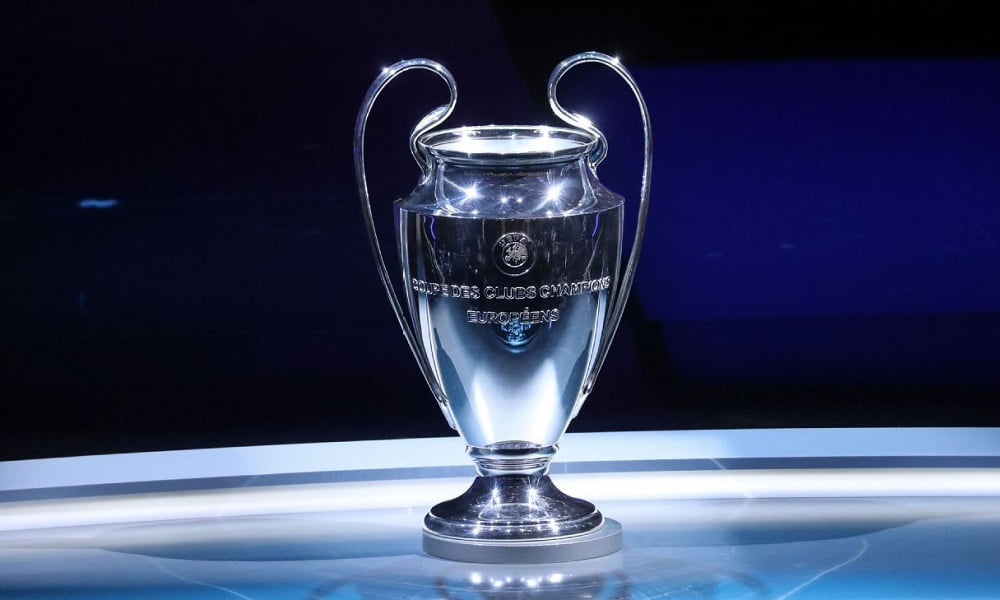Features
Rise & fall of the European Super League
Here are some of the important lessons learned over the last few days as regards the failed “European Super League” idea.
It might have come as a huge shock to the football world when some 12 clubs who claimed to be elite announced on the 18th of April 2021, that there would be a breakaway “Super League” tournament for these clubs.
Six clubs from the Premier League: Manchester United, Manchester City, Arsenal, Chelsea, Liverpool, and Tottenham Hotspur joined the likes of Real Madrid, Atletico Madrid, and Barcelona from the Spanish league, as well as the three most prestigious teams in the Serie A: Inter Milan, AC Milan, and Juventus. In the quest to create their very own version of a European competition whilst reaping all the benefits and eliminating competition in the process.
The move to create this “super league” might have collapsed within 48 hours, but it goes to show the problems in the world of football. Here are some of the lessons learned over the last few days as regards the “super league” idea.
Greed is a huge motivator
The idea behind creating the super league bores down to greed, and a classic case of the rich wanting to get richer without caring about the poor. Real Madrid president, Florentino Perez, who’s the supposed chairman of the super league board, has been the most vocal this week in support of the super league competition. Perez claims big teams in Europe are struggling due to the COVID-19 pandemic and the super league would help offset a lot of financial problems.
What he failed to mention was that the remaining three clubs Real Madrid, Barcelona, and Juventus— stuck in the idea of a super league are all debt-ridden. Madrid and Barcelona have a combined debt of almost £2 billion, while Juventus can’t afford to sign new players or even pay wages of current players and staff members.
None of the so-called elite clubs has done anything to support smaller teams in the lower leagues of their countries but feels entitled to a guaranteed amount of money. Florentino Perez recently made the remarks that the duration of a football match should be reduced to 60 mins from 90, while Juventus president, Andrea Agnelli claimed the creation of a super league would make younger fans pay more attention to football.
At this point, it’s safe to say, these men don’t care about improving the game of football, they just want to make money to offset the debts they led their respective clubs into whilst ensuring they enrich their pockets at the same time.
UEFA & FIFA aren’t blameless
If the founding members of the super league have succeeded in anything, it’s making UEFA and FIFA suddenly look like the good guys. FIFA has received a lot of positive attention for its decision to hold the FIFA World Cup in Qatar, but not everything has been positive. Claims continue against both football’s governing bodies with critics claiming they are “as corrupt as it gets and neither cares about anything other than themselves and their money”. The fight against racism has been going on for centuries, and neither UEFA nor FIFA have been as vocal against it as they were when they needed to shut down the super league.
The truth is, UEFA created the 12 elite, greedy monsters we see today, by their constant catering to the needs of these clubs, whose insatiable appetite only grew more and more. The supposed new UEFA Champions League format expected to begin in 2024 is another example of accommodating these big clubs and has been met by a backlash from fans and players.
If football is to take the next step and avoid any potential super leagues in the future, things must change at the administrative level, especially in the four walls of FIFA and UEFA.
American owners don’t care about football
A host of teams in Europe are owned by Americans, who have always hidden behind their invisible love of sports when it’s time to invest or buy these clubs. However, the last few days have shown they only care about money and profits, just Arsenal and Manchester United fans. These billionaires are used to a closed league system like in the United States and European football doesn’t offer such guarantees, hence the need to join the super league.
Football is for the fans
The reaction of fans all over the world, especially those in England led to the abandonment of the super league project by nine of the 12 clubs involved. All 12 English clubs pulled out on Tuesday, before the likes Inter, AC Milan, and Atletico Madrid followed suit, leaving only the previously mentioned three clubs picking up the remnants of the proposed idea.
Most English clubs had to issue out apologies to their fans, following a series of protests by these supporters, who wanted nothing to do with a closed tournament. Getting back on the good side of the fans is the next step for these clubs after protests continued at the training grounds of Arsenal and Manchester United.
Some fans and pundits have even clamored for the 50+1 rule in Germany, where the fans own 51% of most clubs. Some of these demands have left legislators in some of these countries considering a rule change in terms of ownership of football clubs.
Good idea, poor execution
How do you think of creating a tournament with just three of the 50-odd countries in Europe? A super league without the likes of Bayern Munich, Ajax Amsterdam, and Paris Saint-Germain isn’t so super after all. While Bayern, PSG, and Borussia Dortmund refused invitations to be part of the project, Ajax was completely overlooked, leaving some fans to wonder —who the genuine elite clubs are.
If the super league had mirrored the UEFA Champions League —where all clubs in Europe can qualify— rather than make itself a closed tournament, I’m pretty certain the competition would have been accepted by fans across the globe. As some of these fans were frustrated by some of the ideas and the rule of UEFA.
Super League would have killed competition amongst other things
A competition where managers and players don’t want to be a part of, wouldn’t attract broadcasters or the expected revenue. A lot of managers and players criticized the lack of proper competition the super league would have provided, hence, another reason why it fell through. People like Pep Guardiola and Kevin De Bruyne openly criticized the idea of such a competition and others simply echoed those thoughts.
There’s no disputing that the creation of the super league would have killed grassroots football at every level, as clubs have no incentive to promote player development or seek out the next generation of talented footballers.
In summary, the current football space isn’t perfect and riddled with corruption, racism, and inequality, but the idea of a super league doesn’t solve those problems.




















